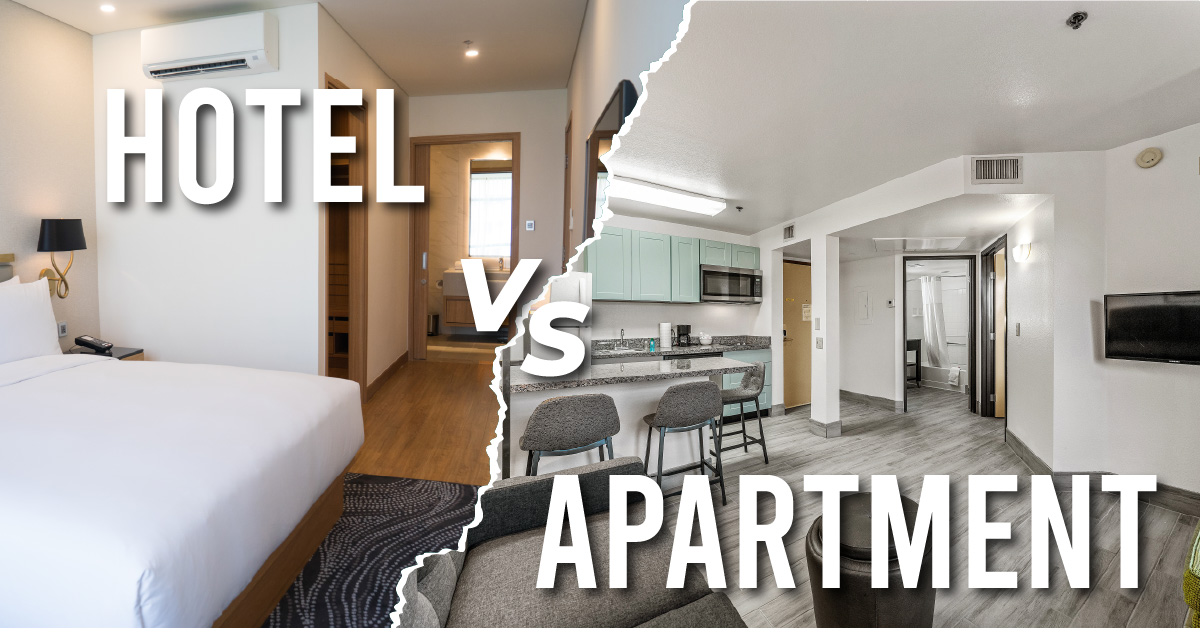
Tired of high-cost hotel bills and cramped rooms? There’s a better way to stay in Arizona—without compromising comfort or convenience.
Table of Contents
- Cost Breakdown: What Are You Really Paying For?
- The Cognitive Burden of Hotels
- The Forgotten Role of Functional Design
- Time Is Money—And Hotels Waste Both
- A Safe Haven for the Anxious or Overwhelmed
- Restorative Space for Remote Work
- Reducing the Waste of Commercial Hospitality
- Guests Making Greener Choices
- Logistics Without the Hassle: Built-In Efficiencies of Apartment Living
- No More Negotiating Daily Needs
- Storage, Not Stashing
- Embedded in the Local Fabric
- The Hidden Value of Stability
- Recovery After Burnout or Relocation Shock
- Insurance and Corporate Housing Coverage
- Emotional Continuity for Kids and Teens
- Temporary Test-Runs for Future Moves
- Uninterrupted Personal Development
- Creative or Purpose-Driven Travelers
- The Discreetness Factor: Staying Without the Spectacle
- From Transition to Transformation
- Who Wins on Value?
- Booking with Ease
- Amenities that Make a Difference
- Elevated Comfort Meets Low Cost
- The Functionality of Living Light
- Long-Term Stay Perks
- Don’t Pay More for Less
- When Arizona Becomes Your Temporary Home, Choose a Place That Feels Like It
- Quiet Growth Based on Experience
- Future of Travel? Or the Present Reality?
The options for a stay in Arizona are no longer answered by a glossy hotel brochure or a last-minute booking app. There’s a quiet shift underway—one that challenges traditional hospitality norms and redefines how people live when they’re far from home.
Hotels may still dominate the travel industry’s advertising space, but behind the scenes, a more nuanced, adaptable solution is emerging furnished apartments purpose-built for extended stays. And the reason this shift is happening goes beyond price tags or square footage. It’s about lifestyle compatibility, psychological well-being, practical ergonomics, and a need for autonomy.
Why are a growing number of guests choosing high-quality, fully furnished rentals over standard hotel rooms when staying in Arizona for more than just a few days?
When you’re booking a stay, your accommodation isn’t just a place to sleep. It affects your budget, productivity, and peace of mind. In Arizona’s ever-evolving housing market, travelers now have better options than standard hotels. Here’s how our furnished apartments stack up against hotels in terms of price, space, and value.
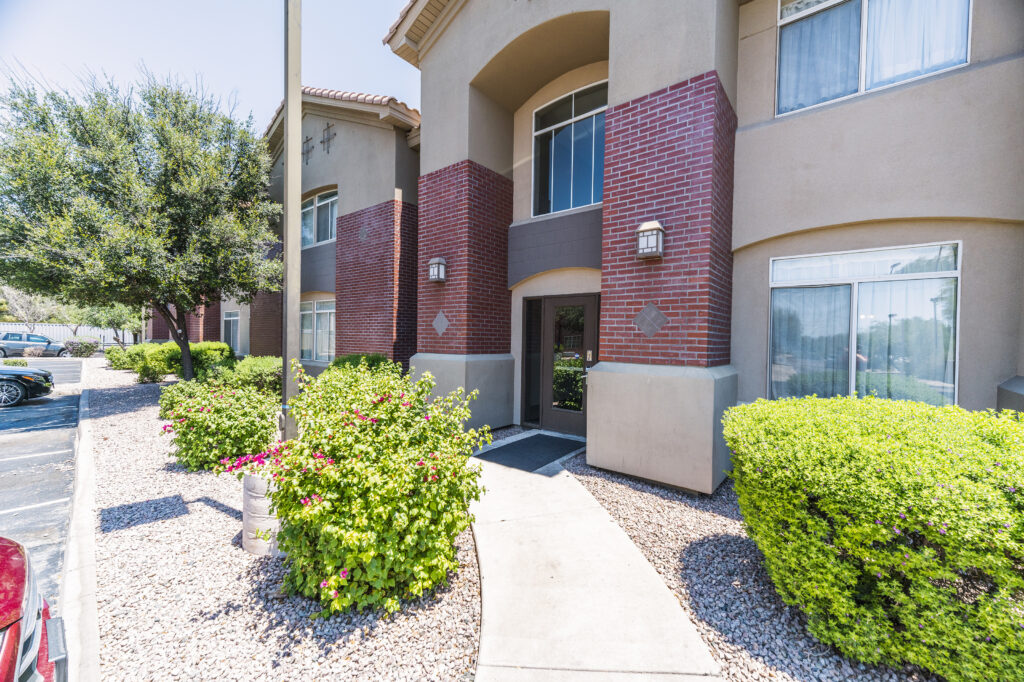
Cost Breakdown: What Are You Really Paying For?
Let’s start with the numbers. According to Statista, the average daily hotel rate in the U.S. exceeds $130 per night—and that’s without considering parking, Wi-Fi, and taxes. In high-demand cities like Phoenix or Scottsdale, rates regularly cross $150–$180 per night for mid-range hotels.
The price of a hotel room is often justified through a vague notion of luxury or included amenities. But break that down and ask: what are you actually paying for?
A significant portion of the cost goes toward staffing, amenities you might never use (like conference rooms or continental breakfasts), and brand overhead. In practice, you may be paying extra money for a night for a small space, a double bed, and a lack of privacy.
Compare that with a furnished apartment rental with everything included: utilities, internet, laundry, parking, and more.
The Cognitive Burden of Hotels
Let’s start with something rarely discussed: mental bandwidth.
Hotels, despite their polish, impose a subtle psychological tax on guests. You’re adapting constantly—from navigating room service menus to figuring out in-room appliance quirks. There’s a sense of performance to hotel stays you’re a visitor in a space that wasn’t made to be lived in, only passed through. The sterile lighting, the over-sterilized ambiance, and the ever-present sense that the room must be left behind—soon—creates mental clutter.
Furnished apartments, by contrast, are designed for living. There’s a rhythm to using your own kitchen, brewing coffee at your preferred time, storing groceries in a full-size refrigerator, and stretching out on a couch that doesn’t scream “corporate minimalism.” These details restore a sense of personal agency. And when you’re staying more than a week, that agency matters.
Comfort, Space, and Privacy
Hotels may offer convenience, but they fall short on everyday comfort. Most hotel rooms are designed for short stays—not real life. You’ll find yourself dining out for every meal, struggling with limited storage, and feeling disconnected from a normal routine.
Furnished apartments, on the other hand, are built for real living. You get:
- A full kitchen to cook your meals and save money
- Separate living and sleeping areas for work-life balance
- More storage, better privacy, and an overall homier experience
Whether you’re staying for a week or several months, an apartment gives you the comfort of home—with the flexibility of a hotel.
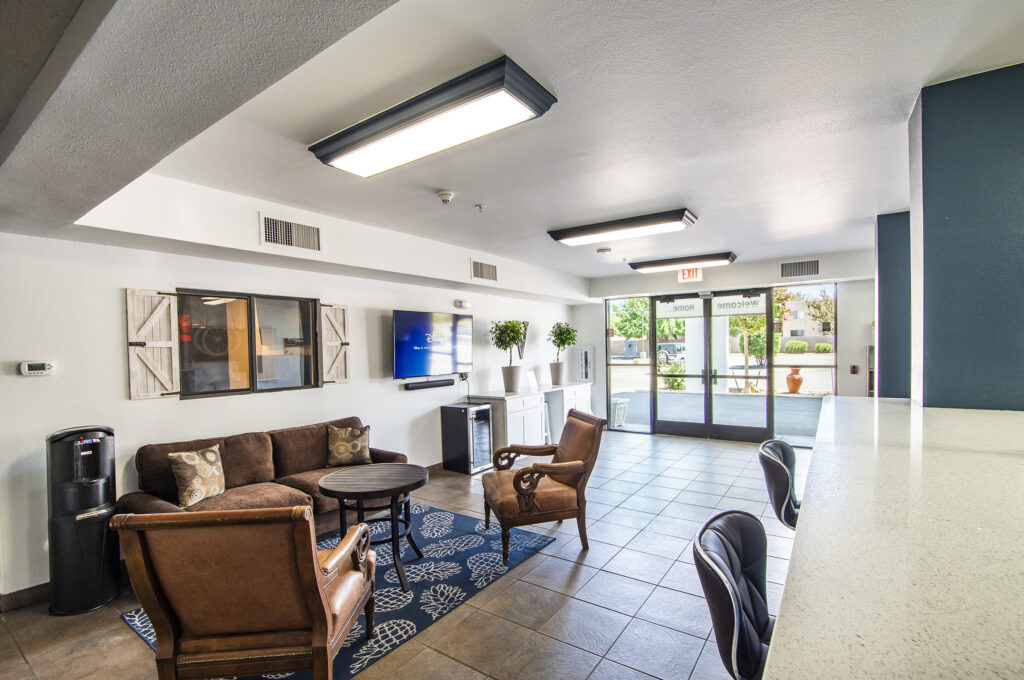
The Forgotten Role of Functional Design
A 400-square-foot hotel room is not designed for complexity. Living out of a suitcase, working from a bed, or pacing the same tight square footage for weeks creates friction—mentally and physically.
Furnished apartments break this limitation. They mimic the structure of a real home: defined zones for sleep, work, cooking, and leisure. This spatial clarity boosts productivity, reduces decision fatigue, and supports well-being.
Time Is Money—And Hotels Waste Both
Waiting for check-in, calling the front desk for basics, or relying on room service eats into a guest’s schedule. Furnished apartments prioritize self-sufficiency, cutting out unnecessary delays.
A Safe Haven for the Anxious or Overwhelmed
Traveling—especially during transitions—is inherently stressful. Hotel living adds unfamiliarity, rigidity, and lack of personal space.
Furnished apartments mirror your home’s rhythm, offering a familiar mental map: a couch to unwind on, a coffee table for morning rituals, a real dining area for conversation.
Restorative Space for Remote Work
Hotels, despite their business-class branding, fail remote workers. Dimly lit desks, unpredictable Wi-Fi, and noise from adjacent rooms reduce productivity.
Furnished apartments support remote work with dedicated workspaces, consistent high-speed internet, and spatial flexibility, allowing guests to concentrate without strain.
Reducing the Waste of Commercial Hospitality
Hotels cycle through single-use plastics, linen replacements, and energy-intensive operations daily. Furnished apartments, by contrast, mimic residential energy and water usage, leading to significantly lower waste per guest.
Guests Making Greener Choices
Staying in an apartment allows guests to cook sustainably, manage waste, reduce plastic dependency, and walk to errands—small but powerful steps for eco-conscious travelers.
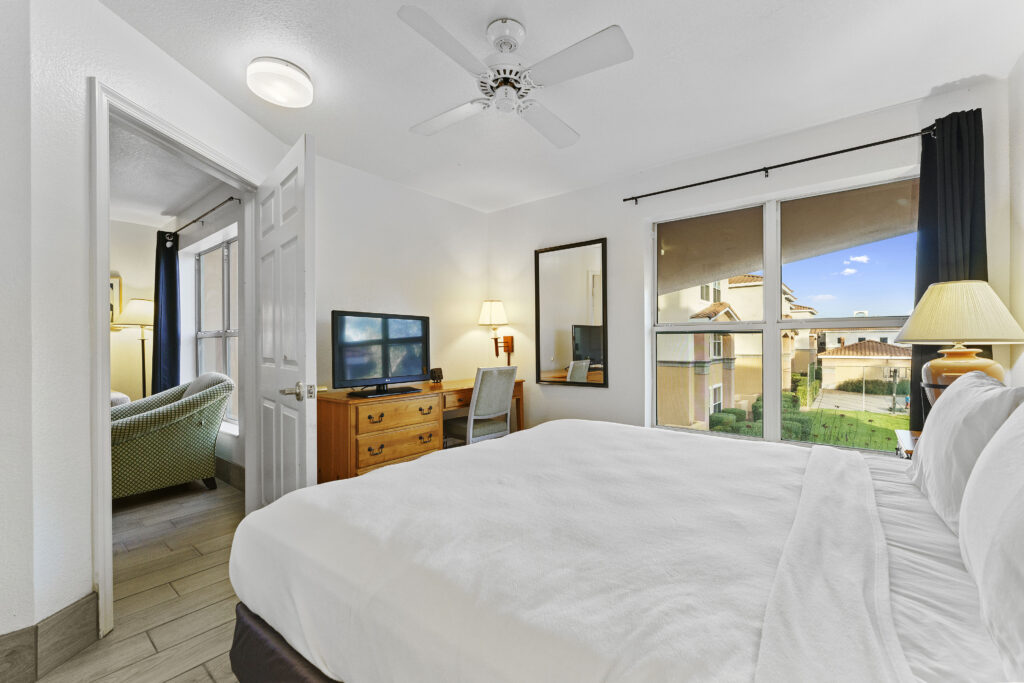
Logistics Without the Hassle: Built-In Efficiencies of Apartment Living
No More Negotiating Daily Needs
In hotels, you ask. In furnished apartments, you act. There’s no need to call reception for more towels, wait for valet parking, or navigate rigid cleaning schedules. Your daily rhythm remains uninterrupted because you’re in a self-contained unit.
Storage, Not Stashing
Where do you put luggage, supplies, or multiple pairs of shoes in a hotel room? You don’t—you hide them.
Furnished apartments offer closets, cabinets, drawers, and extra storage. The psychological benefit of putting things away—and not staring at suitcases—is profound.
Embedded in the Local Fabric
Hotels are usually positioned in business or entertainment districts, isolated from everyday life. But furnished rentals are often integrated within residential neighborhoods, giving guests access to grocery stores, playgrounds, pharmacies, and parks—not just chain restaurants and tour kiosks.
The Hidden Value of Stability
Even the nicest hotel room is a temporary container, not a place you psychologically settle into. The design of hotels discourages personalization: no photos, no rearranged furniture, no pantry full of groceries. That’s not just a style choice—it’s an implicit rule: don’t get too comfortable.
But human beings crave environmental consistency. We focus better, sleep deeper, and relax more fully when we can establish rituals: morning coffee in the same mug, clothes hanging in a closet instead of packed in a suitcase, a known route to the grocery store. These patterns improve cognitive performance and emotional balance—something extended guests often need more than any other demographic.
In furnished apartments, you’re not sleeping in a symbol of someone else’s brand. You’re living in a functional space that accepts your habits, not resists them.
Recovery After Burnout or Relocation Shock
Guests who move to Arizona for career resets, family shifts, or after stressful transitions benefit from what psychologists call “low-stimulation safe zones.”
Hotels, with constant noise, daily turnover, and a sense of impermanence, rarely provide this. Furnished apartments:
- Enable guests to build routines slowly and privately.
- Eliminate overstimulation common in hospitality settings.
- Allow for nesting behaviors that rebuild a sense of stability—buying groceries, organizing drawers, decorating with personal items.
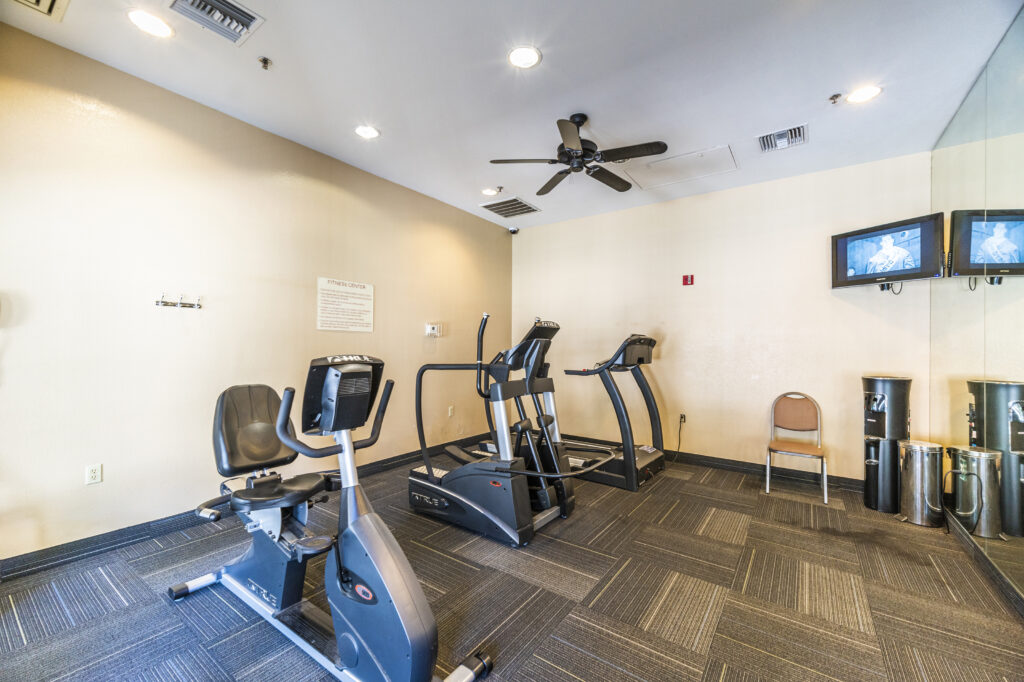
Insurance and Corporate Housing Coverage
Another angle rarely discussed: many guests don’t book directly—they come via insurance claims, relocation packages, or employer support.
Furnished apartments are increasingly:
- Approved for temporary housing in disaster/displacement claims.
- Preferred in relocation packages for onboarding new hires relocating to Arizona.
- Booked by medical companies, universities, and construction firms for staff during contract periods.
This shows not just a market trend, but institutional validation of apartments as the smarter choice.
Emotional Continuity for Kids and Teens
Children feel disruptions acutely. Hotels, with their unfamiliarity and restrictions, often compound that stress.
Furnished apartments:
- Offer consistent sleep environments for children, with room to play and routine.
- Allow for family dinners, homework zones, and weekend movie nights—small rituals that maintain emotional stability.
- Give parents more control over screen time, meals, and bedtime routines—key factors in behavioral regulation.
Temporary Test-Runs for Future Moves
Arizona’s cities like Scottsdale, Tempe, Chandler, and Tucson are popular relocation targets. Many visitors book furnished apartments not just to stay, but to assess.
- Guests can “test-drive” neighborhoods—schools, traffic, community feel—before making major decisions like buying or renting long-term.
- This flexibility helps newcomers make informed, confident relocation choices.
Hotels can’t provide that level of immersion.
Uninterrupted Personal Development
Guests pursuing education, certifications, or remote degrees often seek quiet environments conducive to learning. Furnished apartments offer:
- Defined study spaces.
- Reliable internet and fewer disruptions.
- The ability to maintain sleep schedules, meal planning, and learning routines over weeks or months—something that’s impossible in transient hotel settings.
Creative or Purpose-Driven Travelers
Arizona draws artists, filmmakers, writers, and entrepreneurs. These guests need more than beds and breakfast—they need flexible, inspirational living environments.
Furnished rentals allow creatives to:
- Set up temporary studios, filming locations, or writing nooks.
- Bring in supplies or equipment with no pushback from management.
- Stay productive and inspired without feeling confined.
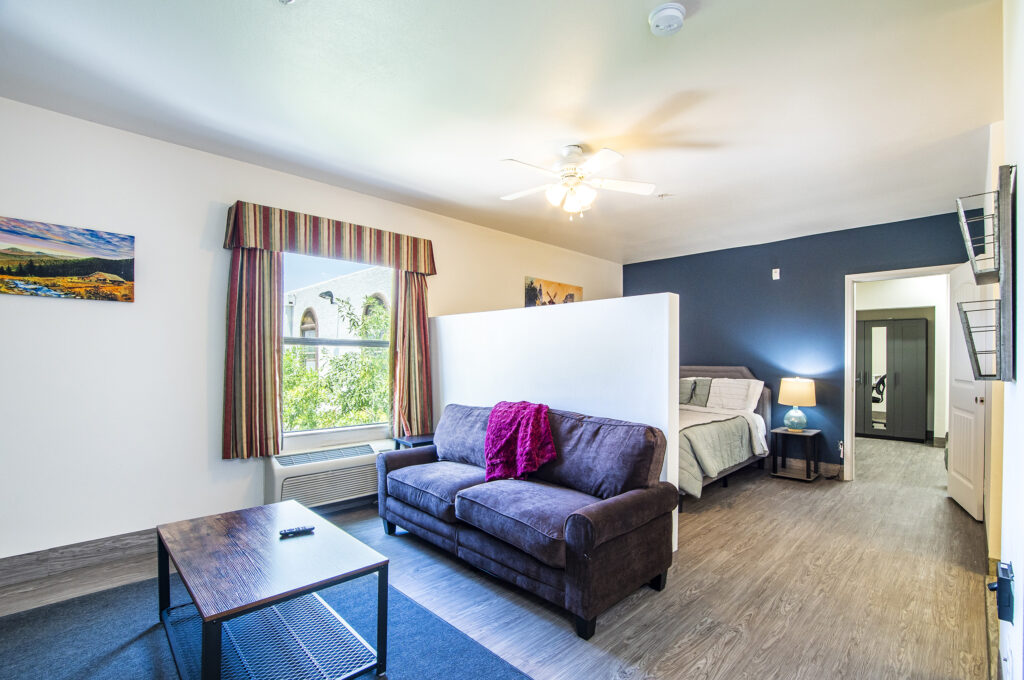
The Discreetness Factor: Staying Without the Spectacle
Hotels can feel performative—every action feels observed. Elevators, lobbies, housekeeping, security cameras.
Furnished apartments offer discreet, anonymous stays:
- No check-ins through a front desk.
- No daily staff entry.
- Freedom to arrive, live, and depart on your terms.
This is especially appreciated by high-profile individuals, introverts, and guests prioritizing personal space.
From Transition to Transformation
For many, Arizona isn’t just a travel destination. It’s a waypoint between jobs, seasons, or life chapters. And the setting for those transitions matters.
A sterile hotel, no matter how premium, often accentuates the uncertainty of a life in flux. But a warm, fully-equipped apartment can act as a transitional anchor—a space that offers privacy, peace, and functionality when things feel uncertain.
People heal better, plan better, and connect better when their living space doesn’t need constant translation or negotiation. For those moving between cities, changing careers, recovering from burnout, or simply reassessing what’s next—furnished rentals can serve as the backdrop for that growth, not a distraction from it.
Who Wins on Value?
Furnished apartments offer a subtle but revolutionary shift: they respect your routines, reward longer stays, reduce financial friction, and create a softer psychological landing. It’s not just about saving money. It’s about gaining space—for your thoughts, your schedule, and your future.
If you add up all the extras hotels charge for—Wi-Fi, daily cleaning tips, parking, eating out—it’s easy to see how your budget can skyrocket.
Meanwhile, our furnished apartments include nearly everything you need in one flat rate. And they’re ideal for:
- Remote workers who need a quiet, productive space
- Traveling medical staff needing proximity to hospitals
- Relocating professionals getting settled before a permanent move
Booking with Ease
Hotels offer nightly flexibility, but that’s often paired with higher prices and inflexible checkout times. Furnished apartments provide short-term or extended stay options with:
- Daily, weekly, and monthly rates
- Easy online booking
- Instant move-in with no credit checks or paperwork delays
Amenities that Make a Difference

Furnished apartments aren’t just practical—they’re elevated. Our units offer:
- Designer furnishings and mattresses
- Fast Wi-Fi for work and streaming
- Smart TVs and dedicated workspace areas
- In-unit washers and dryers in many locations
- Pet-friendly options
Whether you’re staying solo or with family, you’ll have the room and comfort you need to relax and recharge.
Elevated Comfort Meets Low Cost
Furnished apartments aren’t just practical—they’re elevated. Our spaces are built to impress and designed for true livability.
Each unit features stylish, modern décor that rival those of high-end hotels. Many of our units come with in-unit washers and dryers, giving you the comfort and autonomy of a true home.
Whether you’re traveling alone, with a partner, or settling in with your family, you’ll appreciate the peace, privacy, and layout that lets you unwind and recharge in style.
The Functionality of Living Light
Imagine arriving in a new city and having everything ready: clean sheets on a hotel-grade mattress, a stocked kitchen for your morning coffee ritual, and a stylish low-cost living space that feels like home. That’s the kind of elevated experience our short-term rentals offer.
Plus, our responsive support team ensures that if something goes wrong, you’re not navigating it alone. It’s convenience, comfort, and confidence—all under one roof.
Long-Term Stay Perks
If your stay extends beyond a few weeks, hotels begin to show their limits. Furnished apartments offer:
- Better weekly/monthly pricing
- Kitchen facilities to reduce dining costs
- More room for guests or family to visit
- A more settled, local living experience
Don’t Pay More for Less
The next time you’re planning a stay in Arizona, take a closer look at what your dollars really get you. Hotels might be familiar, but furnished apartments offer better cost efficiency, greater comfort, and real-world convenience—especially for longer stays.
For more about national hotel pricing trends and how the Arizona short-term rental market is evolving, visit:
👉 Ready to ditch hotel fees and stay smarter? Contact us to explore move-in ready apartments across Arizona.
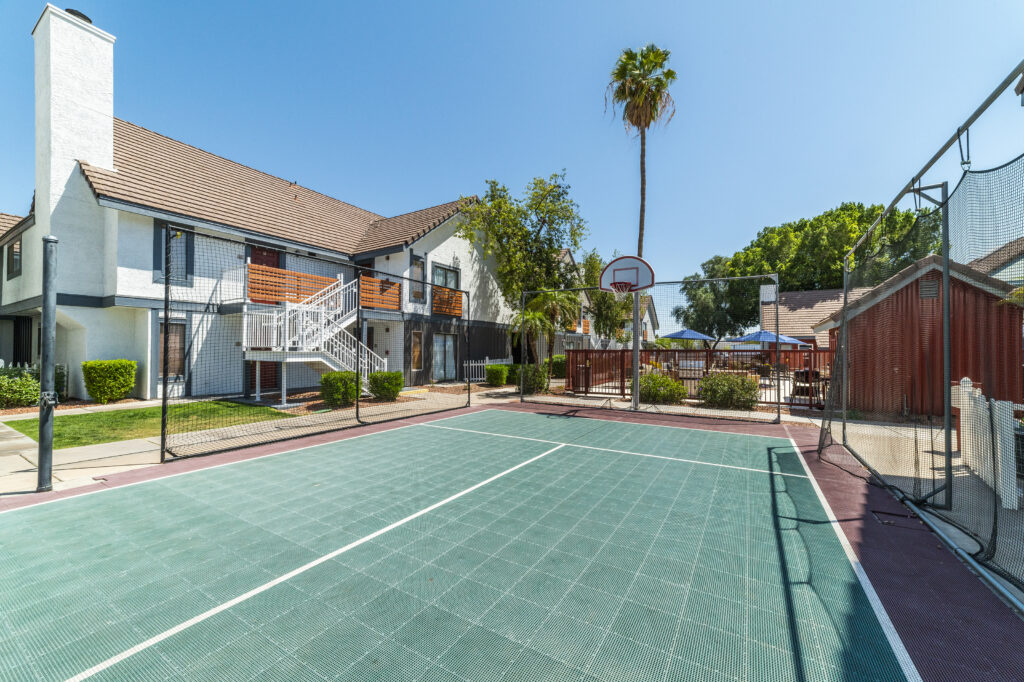
When Arizona Becomes Your Temporary Home, Choose a Place That Feels Like It
You don’t have to sacrifice convenience to escape clustered hotel rooms. You don’t need to choose between affordability and comfort. Arizona’s furnished apartment options present a third path—one that respects your routines, maximizes your budget, and enhances your overall experience.
Whether you’re staying for two weeks, two months, or longer—what you choose to live in shapes how you live. So choose smarter. Choose comfort with purpose. Choose a place that welcomes you not as a guest, but as a temporary resident with real needs and real plans.
Quiet Growth Based on Experience
Unlike hotels, which thrive on advertising and loyalty programs, furnished rentals succeed by referrals, repeat guests, and online reviews. That’s a sign of a product that works—not one that’s simply well-marketed.
Future of Travel? Or the Present Reality?
The shift is already happening. Corporate travelers are requesting furnished units over hotel chains. Insurance providers are covering temporary apartment stays. Medical facilities are referring patients to long-stay options.
This isn’t a trend. It’s a correction.
Click to book your apartment now:




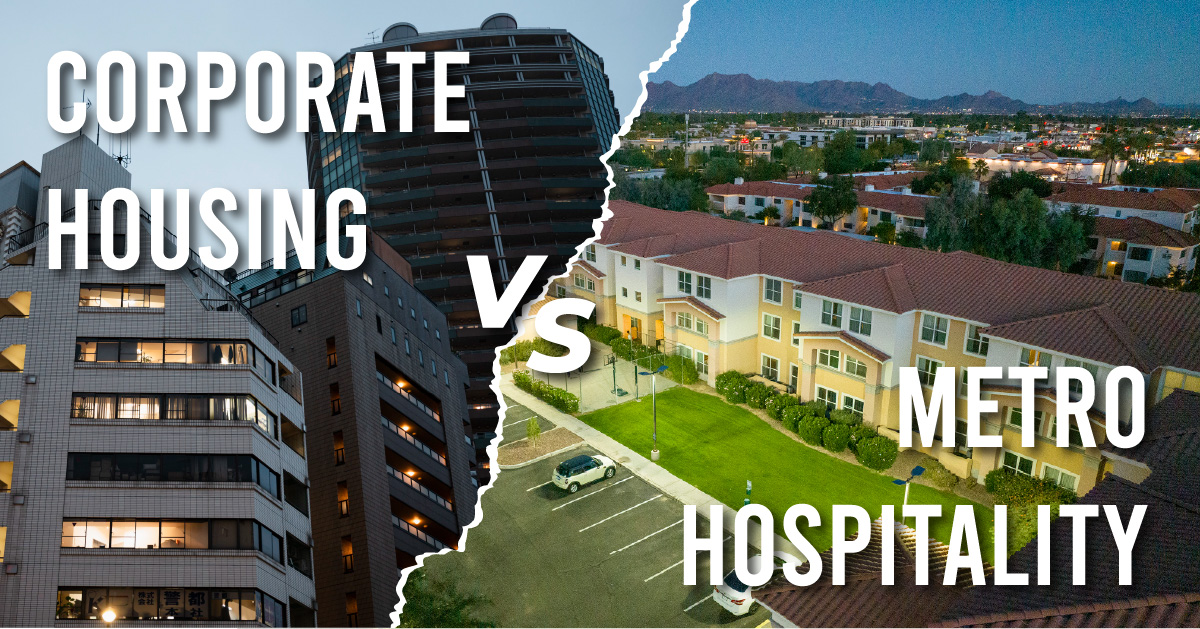







No Comments